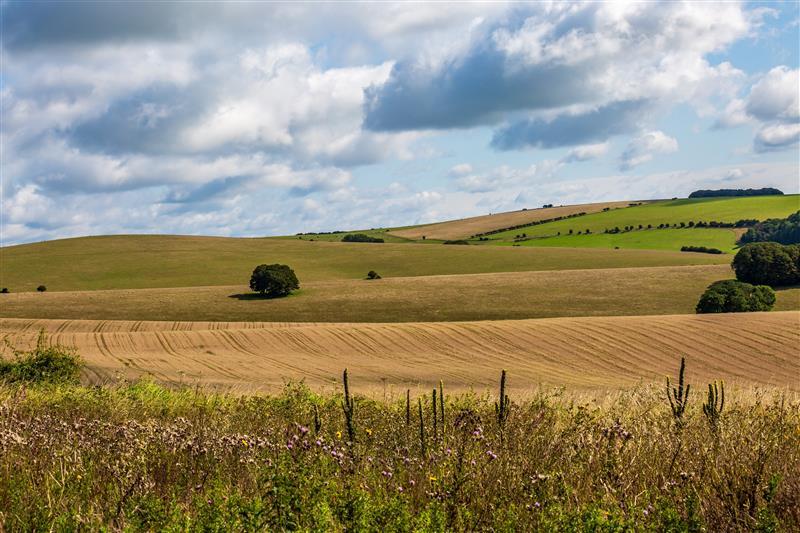
Thank you for continuing to subscribe to our monthly newsletter. We hope you continue to find the content useful and we welcome any feedback or suggestions on topics that you would like to see covered in future editions of the newsletter.
FAS technical advice line: 03000 200 301
- Key dates to be aware of…
- Environment Agency urges farmers to start preparations for winter slurry storage
- The Environment Agency (EA) is urging farmers to start their preparations now for winter slurry storage, with their Winter Ready campaign.
- New Technical Article - Water Quality and Farming
- Produced in partnership with Catchment Sensitive Farming, this article provides a brief and practical review of the relationship between water quality and agriculture in England.
- RPA blog: Getting the most from herbal leys within improved grassland systems
- Herbal leys can offer rewards for your livestock, soil and bottom line while benefitting the environment, but success depends on careful planning, establishment and management.
- Sustainable Farming Incentive Expanded Offer for 2024 (SFI 2024): understanding the annual declaration
- The annual declaration is how you, as an SFI agreement holder, can confirm that you have met or expect to meet the requirements of your agreement for that year.
- How a North Yorkshire a dairy farm addressed issues with its silage clamps
- At a North Yorkshire dairy farm, a routine Environment Agency (EA) inspection on a dairy farm identified a non-compliant silage clamp, causing a risk of pollution.
- How Cambridgeshire Farmers Are Fighting Fires
- Stacey Branson, Farmer & Catchment Sensitive Farming Adviser, tells the story of her experience of an on-farm fire, and her subsequent work with CSF, NFU and Cambridgeshire Fire and Rescue Service.
- Trees on farm: New video series “Stages of woodland management”
- The Forestry Commission has created a valuable new online resource for farmers and landowners with woodland on their property, whether newly planted, well-established, or somewhere in between.
- Continued Dry Weather – An Opportunity for Reservoir Inspection and Maintenance?
- With many reservoirs drawn down further than usual, now may be a good opportunity to carry out inspections and preventative maintenance
- Constructing A Large Raise Reservoir -
- If you are considering building a reservoir to mitigate future dry summers to water your crops, here is some advice on the process
- Updates from the Defra Farming blog and industry announcements
- Capital Grants Offer Closed for New Applications
- UK farmers to benefit from new pork exports to Mexico and smoother dairy exports to Egypt
- Fairer supply chains: supporting the pig sector
- Countryside Stewardship Higher Tier – Complete your pre-application to apply
- Stay up to date with us
- How can we help you?
A reminder that the hedgerow cutting and trimming rules are in place until 31 August.
Exemptions apply in some cases, including when sowing oilseed rape or temporary grass in August, and for the maintenance of public rights of way.
Full guidance on hedgerow management rules is available here
For any land located in a Nitrate Vulnerable Zone (NVZ), this is the start of the closed period for applying organic manure with a high readily available nitrogen content (for example, slurry, poultry manures or liquid digested sewage sludge) to grassland on shallow or sandy soils. GOV.UK
For any land located in an NVZ, this is the start of the closed period for applying manufactured nitrogen fertilisers to tillage land. GOV.UK
For any land located in an NVZ, this is the start of the closed period for applying manufactured nitrogen fertilisers to grassland. GOV.UK
For any land located in an NVZ, this is the start of the closed period for applying organic manure with a high readily available nitrogen content (for example, slurry, poultry manures or liquid digested sewage sludge) to tillage land on shallow or sandy soils that have been sown with crops on or before 15 September. GOV.UK
For more details about the information provided in the key dates table, visit the Rules for Farmers and Land Managers and the relevant pages of GOV.UK.
The Environment Agency (EA) is urging farmers to start their preparations now for winter slurry storage, with their Winter Ready campaign.
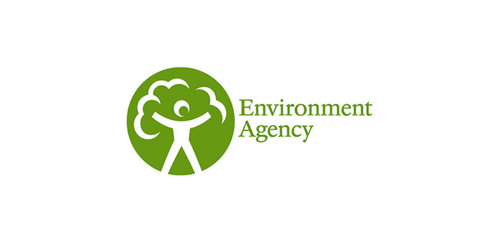
While the current dry weather is at the front of minds, with rainfall across England 20% less than long term average for June, the EA is encouraging farmers to start considering the weather extremes that winter may bring.
To help ensure farmers have enough storage and a robust back-up plan in place, the EA’s Winter Ready campaign will support farmers across the country facing slurry storage issues.
The EA is encouraging farmers to start their preparations now, and to contact them for advice if necessary. If you have any questions or concerns, please speak to your local EA Officer or call the EA’s National Customer Contact Centre hotline on 03708 506 506.
Some simple steps and solutions to tackle slurry storage issues include:
- Ensuring you have adequate storage to see you through winter without the need to spread. The EA recommends having six months of storage to help comply with the requirements of the Farming Rules for Water to spread only according to crop and soil need.
- Covering slurry tanks, lagoons and pits and using the summer months to fix drainage and clear guttering to ensure separation of clean and dirty water, meaning less rainwater mixes with slurry to increase its volume.
- Refraining from taking sludge, digestate or other materials if you don’t have an immediate need for them. Even if you are contracted to take these materials, all producers have a responsibility to ensure bi-products and waste are properly disposed of.
If you have any concerns or questions about adequate slurry storage for the winter, contact your local EA Officer or call the EA’s National Customer Contact Centre hotline on 03708 506 506 or email enquiries@environment-agency.gov.uk.
The EA recommends using the online Slurry Wizard Tool to help farmers with calculations.
Farmers can also look at the Harvesting Success booklet, which provides advice to comply with the law, reduce your risk of causing pollution and benefit their business.
Read the Environment Agency blog on slurry Winter Readiness for further information.

Produced in partnership with Catchment Sensitive Farming, this article provides a brief and practical review of the relationship between water quality and agriculture in England, with a focus on how farming activities can affect water quality and actions to reduce that impact and ensure healthy water bodies.
RPA blog: Getting the most from herbal leys within improved grassland systems
In this post, we'll look at their benefits and provide practical hints and tips to help you set them up for success.
Herbal leys: an introduction

Under the Sustainable Farming Incentive (SFI), herbal leys (actions SAM3/CSAM3) are diverse and productive mixtures of grasses, legumes (for example, clover), and herbs (for example, plantain or chicory).
They are designed to support sustainable, productive systems by:
- reducing reliance on nitrogen fertilisers
- providing high quality drought-resilient forage
- supporting soil health and pollinators
Herbal leys typically last around 4 years before they need to be re-established to maintain the mix of species and manage the weed burden. They are best treated as short-term leys and work well as part of a mixed farming rotation.
Herbal leys are intended for improved grassland or arable land. It’s important to note that herbal leys are not suitable for low input or species-rich grasslands.
In the Sustainable Farming Incentive, SAM3 / CSAM3 actions are only eligible on arable, temporary grassland or improved permanent grassland. They are not eligible on:
- semi improved or unimproved grasslands
- grassland in SSSIs
- land where there are historic or archaeological features
Benefits and challenges
Herbal leys can bring a range of benefits to your farm. By including nitrogen-fixing legumes, they can reduce the need for nitrogen fertiliser, helping to reduce input costs. The diverse mix of grasses, legumes, and herbs provides nutritious forage that supports livestock health and performance.
Over time, herbal leys can also improve soil structure and increase organic matter, contributing to better soil health. The flowering species within herbal leys help to attract pollinators and support wider biodiversity, making them a valuable addition to sustainable farming practices.
Herbal leys can offer many benefits, but they also come with some challenges. They can be difficult to establish and manage, particularly in the early stages.
Once established, weed control options are limited, as most herbicides cannot be used without harming the diverse mix of plants and biodiversity. Herbal leys perform best on fertile soils, so they need careful planning and preparation to ensure they thrive and achieve the intended benefits.
Before getting started, it’s a good idea to be clear about your goals. Are you aiming to reduce inputs? Improve drought resilience? Build soil health? Understanding your aims will help you decide whether it’s the right investment for your farm.
Read the full RPA blog post, including how to start and herbal ley establishment methods, here.
What is the annual declaration?
The annual declaration is how you, as an SFI agreement holder, can confirm that you have met or expect to meet the requirements of your agreement for that year. It’s an important part of receiving the final payment for the agreement year.
You make your annual declaration online using the Rural Payments service, making it accessible and straightforward.
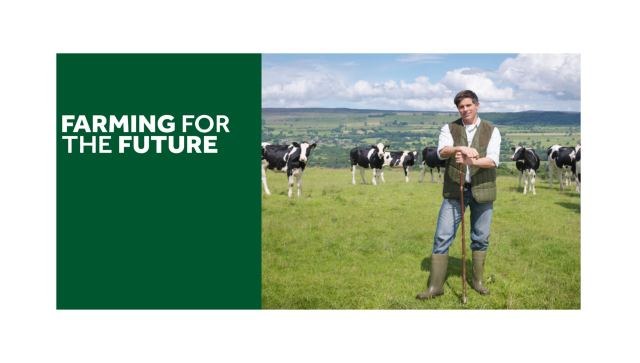
What you need to do
Each SFI agreement lasts for 3 to 5 years. As an agreement holder, you need to submit an annual declaration during the last 2 months of each relevant agreement year.
The timing for the declaration depends on the start date of your SFI agreement, and the Rural Payments Agency (RPA) will let you know when the submission period opens. If the RPA are unable to invite you to complete your declaration at the expected date, they will contact you by phone, email or letter.
Before submitting an annual declaration, you should download a copy of the current year’s agreement.
Below is a summary of what you need to do:
- Receive your notification: The RPA will tell you when the annual declaration period begins.
- Access the Declaration Form:
- Sign in to the Rural Payments service.
- Click on the 'Business overview' section.
- Complete the Declaration:
- Click on the 'View Annual Declaration' button.
- On the screen asking, ‘Can you make your annual declaration confirming that you are complying with all your agreement obligations?', select 'Yes'.
- Review and submit your declaration.
- When the annual declaration is submitted, a confirmation message pops up on the screen. You may want to take a screenshot of the pop-up message or make a note in your records that you have submitted your annual declaration.
It’s important to submit your annual declaration within the timescale to receive the final quarterly instalment of your annual payment. Your final payment will usually be made 3 months after your third payment but will not be released until you have completed the 12th month of your agreement year.
If you haven’t been able to meet your agreement requirements for this year, you should select ‘No’ and complete the free-text box to explain why. RPA will then review this information and contact you.
Key dates for submitting your annual declaration
Below are the opening and closing dates for the annual declaration based on the start date of your agreement.
| Agreement start date | Declaration period opens | Declaration period closes |
| 1 August 2024 | 1 June 2025 | 31 July 2025 |
| 1 September 2024 | 1 July 2025 | 31 August 2025 |
| 1 October 2024 | 1 August 2025 | 30 September 2025 |
| 1 November 2024 | 1 September 2025 | 31 October 2025 |
| 1 December 2024 | 1 October 2025 | 30 November 2025 |
| 1 January 2025 | 1 November 2025 | 31 December 2025 |
| 1 February 2025 | 1 December 2025 | 31 January 2026 |
| 1 March 2025 | 1 January 2026 | 28 February 2026 |
| 1 April 2025 | 1 February 2026 | 31 March 2026 |
| 1 May 2025 | 1 March 2026 | 30 April 2026 |
| 1 June 2025 | 1 April 2026 | 31 May 2026 |
| 1 July 2025 | 1 May 2026 | 30 June 2026 |
You should mark the relevant dates in your calendar and complete your declaration promptly to avoid any delays to your payment.
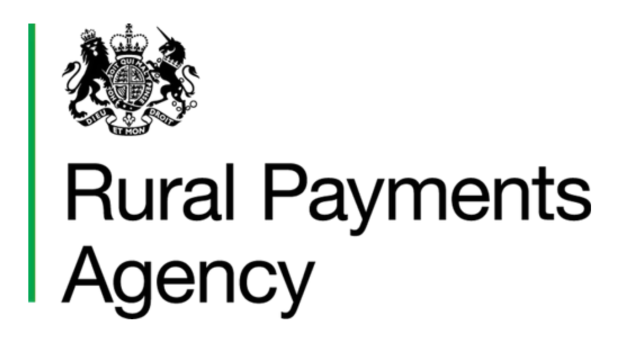
More information
You can read more about the annual declaration requirements in section 12.1 of the SFI expanded offer for 2024: agreement holder’s information. There are different versions of this guidance you will need to use, depending on the start date of your agreement.
If your agreement started:
- on or before 1 August 2024, use version 1.1
- on or after 1 September 2024 but you applied by 11 March 2025, use version 1.2
If you need any assistance or have questions about the annual declaration process, please contact the Rural Payments Agency
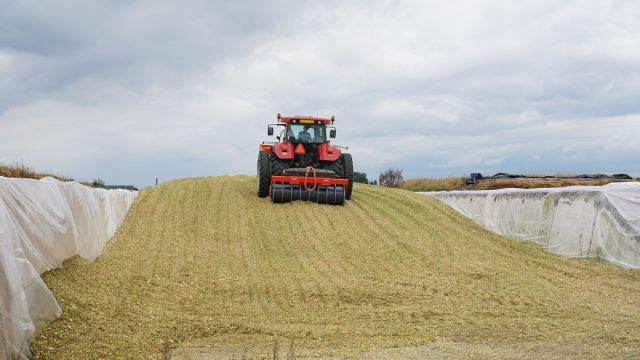
At this North Yorkshire dairy farm, a routine Environment Agency (EA) inspection on a dairy farm identified a non-compliant silage clamp, causing a risk of pollution.
After this compliance issue was identified, the EA officer worked closely with the farm to find a solution, including advising on the construction of a compliant silage field heap as an interim solution. Having been given time to plan for the longer term, the farmer decided a new silage clamp would be the most beneficial and cost-effective solution.
Following this, the farmer worked with the EA officer to ensure the new silage clamp was designed and constructed in line with the legislative requirements (specific to the requirements of perimeter drainage, effluent tank capacity and design types).
The new silage clamp was constructed in coordination with the EA, by a specialist contractor and in a location that made daily operations for the farmer more time efficient and manageable. The new silage clamp also ensured leachate would be captured and contained and silage could be better covered, fully protecting it from rainfall.
“I was in the main farmyard when we got the phone call about the fire. The wind was changing direction and flames were heading towards the tinder-dry woodland next to our farm and home.” - Stacey Branson, Farmer & Catchment Sensitive Farming Adviser
The nearest working fire hydrant to Stacey’s farm was over 2 miles away. The fire service had to create a shuttle moving just 2,000L of water per fire engine each trip, causing a massive delay in tackling the fire. Stacey’s on-farm rainwater harvesting tanks were full, holding 20,000L of water but the fire engines didn’t have a way to connect to them.
Following the fire Stacey worked with Cambridgeshire Fire and Rescue Service to find a way of connecting fire engines to on-farm rainwater harvesting tanks in an emergency.
Together with the National Farmers Union and Catchment Sensitive Farming they are asking Cambridgeshire farmers to register their tanks as emergency water sources in the event of fire.
Stacey hopes the trial will encourage other farmers to install rainwater harvesting tanks: “They’re great for the business, the local environment, and in the event of a fire they could ultimately save livestock, crops, wildlife, local habitat and lives.”
Watch the video to hear Stacey’s story or read the full article below.
Read Stacey’s story here
The Forestry Commission has created a valuable new online resource for farmers and landowners with woodland on their property, whether newly planted, well-established, or somewhere in between. Their new series of short, accessible videos on woodland management is designed to support you at every stage of your woodland journey.
These videos offer practical guidance on what to look out for and what actions to take as your woodland develops. From tips on early establishment, navigating the thicket stage, caring for a growing forest, strategies for mature trees, stewardship for mature and ancient woodland, and timber production from establishment to roadside, each video provide a clear overview of the steps involved.
Ideal for anyone who wants to better understand how to care for their woodland, improve its value, and ensure it thrives for generations to come. You can watch the full series on the Forestry Commission’s YouTube channel here: Forestry Commission Woodland Management Playlist.

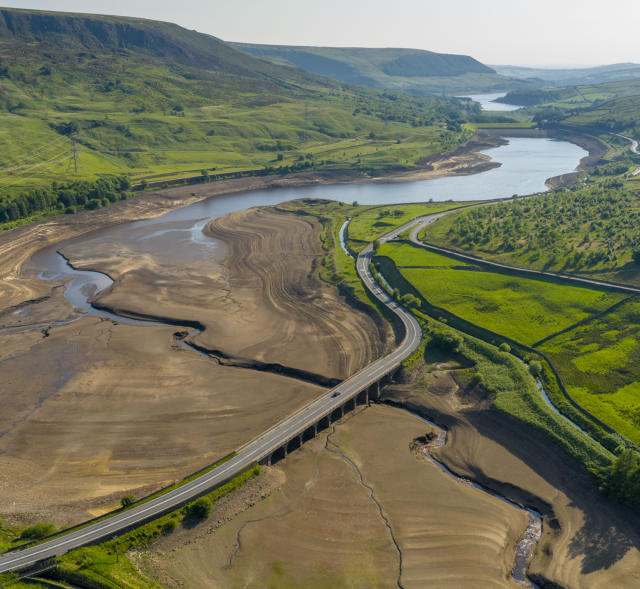
With many reservoirs drawn down further than usual, now may be a good opportunity to carry out inspections and preventative maintenance. Key actions to consider include:
- Inspect reservoir liners for cracks, tears or signs of wear that could lead to leaks or structural issues when refilling.
- Check for sinkholes or subsidence in exposed reservoir beds, which may indicate underlying instability.
- Clear sediment build-up from reservoir beds and channels to improve storage capacity and water quality.
- Assess for shrinkage and loss of active grass cover - prolonged dry conditions may have weakened vegetation, increasing erosion risk during refill.
- Inspect emergency grass spillway surfaces - while the root systems are likely to remain intact but dormant, the overall surface may still be more susceptible to erosion.
- Inspect earth dam crests for desiccation cracks in upper levels of clay cores, which could become an erosion risk when the reservoir refills.

If you are considering building a reservoir to mitigate future dry summers to water your crops, here is some advice on the process.
A large raised reservoir is a reservoir capable of holding 25,000 m³ + of water above ground level. These are regulated by the Environment Agency under the Reservoirs Act 1975 (as amended). Requirements vary depending on whether the Environment Agency classifies it as high risk (after construction).
You must notify the Environment Agency if you plan to construct a large raised reservoir and will also need planning permission. It is possible that an abstraction licence with which to fill it and other relevant environmental permits may be required, depending on the reservoir type and its situation. Reservoirs smaller than 25,000 m³ do not currently have to be registered under the Act.
Reservoir types:
- Impounding – blocks natural flow of a river or drainage from an area
- Non impounding – filled via pumping water or by piped inflow of water
For registration, you must provide:
- Reservoir name
- Ordnance Survey grid reference
- Owners/operators name and address
- Construction completion date
- Dam height (relative to surrounding ground)
- Top of dam level (relative to ordnance datum) and maximum water level
- Reservoir capacity
- Water surface area
- Panel engineer(s) name(s) and address(es)
- Certificates issued by engineers
- Date next inspection is due
You must appoint a construction engineer (a Qualified Civil Engineer, also known as a panel engineer) at the design phase to assist through design and build. This helps meet certification and safety standards required by the Act.
- Lists of panel engineers can be found here:
https://www.gov.uk/government/publications/contact-details-of-engineers-on-the-all-reservoirs-panel
To register your large raised reservoir or ask any questions please email reservoirs@environment-agency.gov.uk
- Further information can be found here:
https://assets.publishing.service.gov.uk/media/5a7b9110ed915d414762136e/gemi0408bnzp-e-e.pdf

Defra regularly updates the Farming blog. Please subscribe to the blog to ensure you receive all the latest news.
Capital Grants Offer Closed for New Applications
Thousands of farmers will benefit from £150 million from Capital Grants funding supporting sustainable food production and environmental improvement.
With over 8,000 applications submitted in under 5 weeks, this is the fastest uptake ever for the offer and shows a clear appetite from the sector to transition towards nature-friendly farming.
Having funding thresholds in place for this round means more farmers have been able to access help to support their efforts to deliver for nature than in previous years, ensuring that every single penny of funding gets into farmers pockets.
Grants for reducing farming’s impact on water quality have proved to be the most popular, including upgrades to yard proofing to reduce agricultural runoff and fencing to keep livestock out of water courses.
The government is committed to supporting farming to reduce their impact on waterways, and these grants will help farmers to produce food in a way that is more sensitive to river catchments, with reduced water pollution.
Elsewhere, this round of funding will help support on-farm efforts to enhance biodiversity, with grants for hedgerow planting and laying, creating and restoring important habitats for wildlife. Grants will also promote sustainable farming practices by funding practical environmental improvements, such as planting shelterbelts to improve air quality, that benefit both nature and long-term farm resilience.
As part of a new approach to communicating with the sector, Defra published updates for farmers and land managers when key milestones for uptake were reached, including at 50%, and 75%, and advised that the fund would close as soon as all funding was allocated.
Applicants whose application has been approved will receive their money once the work has concluded and they have submitted claim for payment.
Defra plan to make further improvements to the offer for future rounds and expect to open a new round for farmers to access more funding during 2026.
If you started your application but didn’t submit it, unfortunately you won’t be able to continue.
There may be some exceptions for applicants who were unable to submit their application and contacted the RPA for help. The RPA are reviewing these cases individually and will be in touch directly.
For more information read the Defra Farming Blog post.
Fairer supply chains: supporting the pig sector
From 13 August, The Fair Dealing Obligations (Pigs) Regulations 2025 (FDOP2025) came into force. This is part of the government’s drive to improve and create greater fairness in the agricultural supply chain, to ensure fairer contractual practices for pig farmers and producers.
FDOP2025 applies to pig purchase contracts between “purchasers” (such as pig processors and abattoirs) and “qualifying sellers” (producers, including pig farmers and those who buy pigs without processing them) although some exemptions may apply.
These new rules make sure both parties know their rights and responsibilities under the pig purchase contract.
Read this blog post authored by Richard Thompson, the Agricultural Supply Chain Adjudicator (ASCA), to learn more about what this means and how Defra is working with the sector to prepare for these changes.
UK farmers to benefit from new pork exports to Mexico and smoother dairy exports to Egypt
British pork is set to be served up on Mexican tables following the UK’s successful bid to secure long-term access to this lucrative market.
British pork stands out globally for its exceptional quality and strong welfare standards, positioning British pig farmers perfectly to supply premium pork products that meet growing Mexican consumer demand.
Twelve businesses across England and Northern Ireland have secured approval to export quality British products, including favourites such pork chops, to Mexico’s rapidly expanding market.
The businesses will also now be able to export offal and edible by-products, bringing British pig farmers a return on parts that are less popular in the UK but which Mexican consumers relish as part of classical buche meat dishes.
Sustaining and growing the export market is essential for optimising the full value of British pig carcasses, which in turn helps strengthen prices for UK farmers at the farm gate. With consumption in Mexico’s pork market growing by 5.4% annually between 2019 and 2024, industry estimates expect the deal to bring in £19m over the first five years.
In addition, British dairy farmers are set to benefit from continued access to a major international market thanks to a breakthrough with Egypt that will prevent a trade barrier due to come into effect next year. Preventing the trade barrier that was due to come into force in January will protect an estimated £250 million in additional export opportunities for farmers over five years helping them sell more products like milk, butter and cheese.
Following regular UK Government engagement in support of international efforts—led jointly by the Department for Business and Trade and Department for Environment, Food and Rural Affairs—Egypt will not impose a proposed trade barrier requiring halal certification on all dairy imports.
This change means British favourites like cheese and butter can continue to reach Egyptian shelves more easily and affordably benefiting both UK farmers and international consumers.
This is particularly good news for producers of cheese, butter and milk powder—some of the UK’s most popular dairy exports—who now face fewer hurdles when selling to Egyptian buyers.
These announcements form part of the Government’s Trade Strategy, launched in June, which is focused on removing market access barriers, opening new markets, and growing the UK economy.
Countryside Stewardship Higher Tier – Complete your pre-application to apply
In September, the new Countryside Stewardship Higher Tier (CSHT) service will open for applications to those who have been invited to apply, have received pre-application advice and have completed any preparatory work.
If you have been invited, your pre-application invitation email from the RPA includes details on how to respond and what happens next. You must complete the pre-application process before you will be eligible to be invited to submit an application.
Once you have confirmed that you are ready to start the pre-application process, a Natural England adviser or Forestry Commission woodland officer will contact you to discuss what you need to do before you can apply. Part of this might involve preparing a plan or study to support your application.
After completing the pre-application step and receiving an invitation to apply for an agreement from the Rural Payments Agency (RPA), you will be able to access and start your application through the Rural Payments service.
For more information on CSHT and the pre application process, read the recent Defra Farming Blog post.
Rural Payments Agency Blog
To stay up to date with the latest information and updates from the Rural Payments Agency (RPA), sign up to the RPA Blog. You can also listen to the RPA Podcast, which has been launched to help farmers, landowners and rural communities keep up to date with the latest news from the RPA. You can also follow the RPA on social media:
- X @ruralpay
- Facebook: facebook.com/RuralPaymentsAgency
- YouTube: Rural Payments Agency
- Instagram: ruralpay.

Stay up to date with us
Subscribe to our free monthly newsletter
If you don’t already receive our monthly FAS newsletter, please visit farmingadviceservice.org.uk/signup and enter your email address into the newsletter sign-up box.
In line with data protection regulations, such as the General Data Protection Regulation (GDPR) and the UK Data Protection Act 2018, the FAS has updated its privacy policy to explain how your data is kept safe. To view the policy, please visit www.farmingadviceservice.org.uk/events/privacy/.

Free and confidential advice
The FAS is funded by the Department for Environment, Food and Rural Affairs (Defra). We provide free, confidential advice to help farmers and land managers in England understand and meet the legal requirements in English law around certain farming activities to protect people, livestock and the environment. We update the farming sector on relevant government farming policy that is applicable in England and on the actions that can be taken to help farmers comply with the relevant regulations. Our newsletter also provides articles on topics that are complementary to farming regulation, such as practices that benefit the wider environment and wellbeing support.
Our website hosts our previous newsletters, as well as technical articles and webinars that cover various topics in more detail.
Contacting the advice line: Farmers requiring telephone advice can contact the FAS technical advice line on 03000 200 301, Monday to Friday, between 08:30 and 17:00. The Rural Services Helpline provides a single number for all FAS, Rural Payments Agency (RPA), Animal and Plant Health Agency, Natural England and Forestry enquiries.
You can also email enquiries to advice@farmingadviceservice.org.uk. Our helpline team aims to respond to all telephone and email enquiries within one working day.